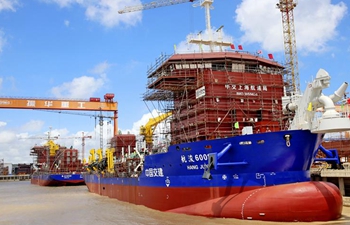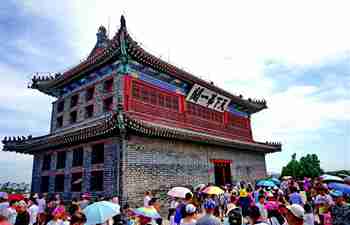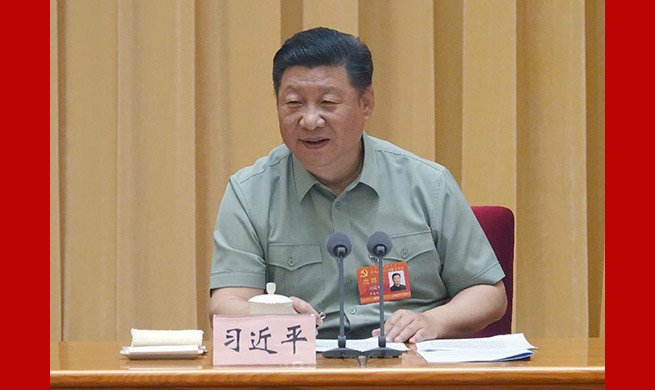BEIJING, Aug. 20 (Xinhua) -- Over two decades, it has been the main source of pollution in villages and rivers near Beijing: 20 million tonnes of pulverized fuel ash from a coal-fired power plant.
But for Liu Kefeng, 63, it is a "huge treasure". After three years of research, a team led by Liu has turned the ash into artificial soil, which can be used to grow seedlings and make cities greener.
"I did not expect that there was such a huge amount of ash, and I was surprised that it could be the ideal material for planting," said Liu.
Covering more than 53 hectares, the ash dumping Fuyingzi Township, in Luanping County, Hebei Province, is just a kilometer from the Luanhe River, which supplies water for nine counties and the neighboring port city of Tianjin.
It is also a serious threat to air quality in cities including Beijing during dry windy seasons.
In the past, the ash was used as a building material, but technology made it redundant and it began to pile up. Local officials had no idea what to do with it until they found Liu in 2015.
A professor at Beijing University of Agriculture, Liu has studied the reuse of farm waste for 30 years. He has helped Beijing suburban villages turn animal dung into organic fertilizers, cutting pollution and raising farmers' incomes.
In 2017, Liu's team developed a new type of nutritional soil with the ash as the main material, supplemented by mushrooms, straw, livestock manure and sawdust. In certain temperatures, humidity and air conditions, the ash ferments and gradually acquires organic substances.
The artificial soil, known as nutrition substrate, has perfect voids and acidity, very similar to peat, a natural resource that was widely used in agriculture and forestry, according to researchers.
Peat is an accumulation of partially decayed vegetation or organic matter. Because of its rich nutrients, peat is one of the best materials for compound fertilizers, and has been used on lawns, golf courses, football fields, tennis courts, and gardens.
China's natural peatland is rare and the country relies on imports. The price of imported peat is up to 600 yuan about 87.3 U.S. dollars per cubic meter, said researcher Yang Meng.
The new soil will cost half the price.
"In addition, the existing amount of ash may produce 120 million cubic meters of soil, which can cover half the area of Beijing for roof greening," said Yang.
One reason behind the low price is the reuse of waste from edible mushrooms.
More than 40 percent of China's mushrooms are produced in Hebei. Mushroom stalks, considered useless, have been abandoned in villages, adding to environmental pressures.
Researchers used the mushroom stalks as a soil inoculant, with beneficial microbes for soil and plant health.
Yang estimated that 72 million cubic meters of mushroom stalks would be consumed with the 20 million tonnes of ash.
The artificial soil has brought the researchers accolades. A production plant has been built in the township and will offer at least 20 jobs to villagers this year, said Yang.

















